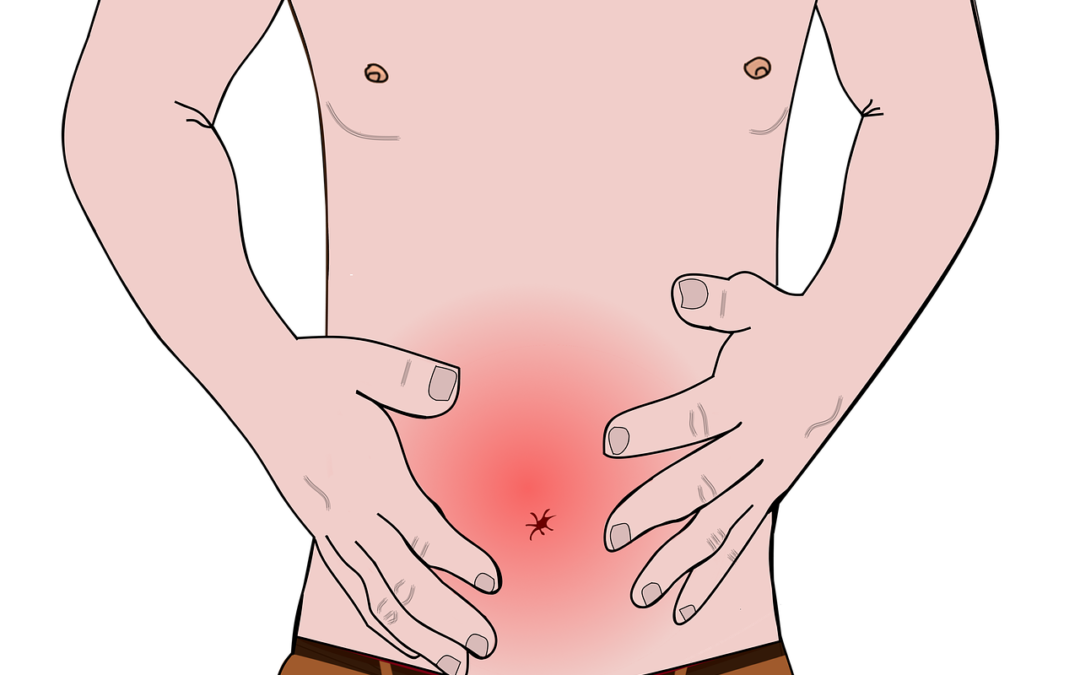
by Tanya Keam | Jan 24, 2024 | Acupuncture, Anxiety, Chinese medicine, Client information, Digestive health, Emotions, Herbal remedies, Irritable bowel syndrome, Loose stools, Nambour, Nutrition, Stress, Sunshine coast
Irritable Bowel Syndrome
Irritable bowel syndrome (IBS) is a common disorder that affects the stomach and intestines, also called the gastrointestinal tract. Symptoms include abdominal pain, bloating, cramping, gas, and diarrhoea or constipation, or both.
Only a small number of people experiencing IBS have severe symptoms, while others experience mild pain and alternation of bowel habits. So how are your insides? Worried about where the next toilet will be? Your digestion is switching from diarrhoea to constipation and you’ve tried dairy free, gluten free or the low-FODMAP diet?
Sometimes people can visit their medical physician with symptoms and either be dismissed or referred to a gastroenterologist. Sometimes people can get a parasite or gastroenteritis (infection/inflammation in the gut) from eating contaminating food/water from traveling overseas and then end up with IBS symptoms long term.
To date, the pathophysiology of IBS is still not completely understood. However, specialists are now more accepting of IBS signs and symptoms being a functional disorder with both physiological and psychosocial factors, despite x-rays, lab tests or biopsies being clear.
What might a specialist first exclude before diagnosing Irritable Bowel Syndrome?
Due to many digestive conditions having similar signs and symptoms, a specialist must first rule out other conditions such as:
- Small-bowel bacterial overgrowth
- Lactose intolerance
- Eating disorder
- Inflammatory bowel disease
- Autoimmune disease
- Coeliac disease or celiac sensitivity
- Parasites
- Infection
- Laxative use
- Microscopic colitis
- Pharmaceutical side effects
- Gastritis or Enteritis
A patient may undergo blood tests, stools tests, physical examination, colonoscopy, ultrasound or sigmoidoscopy tests and a physician will also exclude any of the above causes (1). If tests come back clear and no other gastrointestinal diseases are determined, then IBS is considered (2).
How is Irritable bowel syndrome treated ?
Doctors may treat IBS by recommending changes in what you eat and other lifestyle changes, medicines, probiotics, and mental health therapies (3).
Also:
- Increasing fibre to improve constipation
- Decreasing gas producing foods
- Following a FODMAP photocol or other dietary protocol that improves symptoms
- Mental health support
- Stress management
- Getting enough sleep
- Increasing exercise
- Drug therapy for the dominant symptoms
What does research say about other therapies such as Chinese medicine, Acupuncture and behavioural therapy?
A review of mind/body approaches to irritable bowel syndrome has suggested that alternate strategies targeting mechanisms other than thought content change might be helpful, specifically mindfulness and acceptance-based approaches (4).
Best practices in treating IBS support the idea that patients should be referred for behavioural therapy early, not just when patients have failed everything else. Ideally, consultation with a gastrointestinal psychologist would be incorporated very early into the treatment plan so that collaboration can occur between the patient, psychologist, gastroenterologist, and possibly a dietitian. IBS is a multifactorial disorder, and the field of gastroenterology is moving toward additional in-clinic assessments of mood to more comprehensively aid patients in the management of complexities associated with IBS (5).
A 2015 Australian randomised-controlled trial showed that Chinese herbal medicine may be an effective treatment in relieving IBS. The double-blinded trial was for constipation-type IBS, and it found that Chinese herbal medicine reduced symptoms, increased bowel satisfaction and stool consistency, reduced straining and hard lumpy stools, compared with placebo (6). The study also showed how quickly symptoms can improve with symptoms improving by week 8 of the trial and the herbs being well tolerated by participants.
Other research suggested by The World Journal of Gastroenterology of a meta-analysis of 6 randomised controlled trials in 2014. The review found that acupuncture clearly leads to control of IBS symptoms which is both statistically characteristic and statistically significant (7).
Moxibustion (moxa) is a technique to burn mugwort on or close to a patients skin with or without acupuncture stimulation. It is used to help relieve pain, discomfort, to encourage blood flood and alleviate other symptoms according to Chinese medicine diagnosis. A review of 20 randomised-controlled trials of managing IBS showed moxa may provide benefit to IBS patients, however further research is needed (8).
How does Chinese medicine and Acupuncture help Irritable Bowel Syndrome?
Publications of the interactions between traditional Chinese medicine and the gastrointestinal system from the years 2004 to 2021 has been widely studied, with the number of papers rapidly increasing since 2018 (9).
One of the branches of Traditional Chinese Medicine is Acupuncture, which is used to stimulate documented acupuncture points to relieve pain, treat internal organ problems, reflect on disease conditions and activate the self healing ability to keep people well.
The Acupuncturist will talk with the patient about signs and symptoms and other lifestyle or dietary factors that may be contributing to the problem. Sometimes acupuncture alone can regulate the digestive system, other times herbal medicine is prescribed alongside depending on predominant symptoms such as constipation or diarrhoea. Other symptoms are taken into account for the patients individual pattern when herbs are given.
Educating patients about lifestyle factors for managing stress is also important. We will work closely with the patient to improve their diet, reduce foods that may be contributing to IBS or other gastrointestinal problems.
 Tanya Keam is an integrative Chinese medicine Doctor and registered Acupuncturist in Nambour in the beautiful Sunshine Coast hinterland in Queensland, Australia. If you’re experiencing the above symptoms or interested in Traditional Chinese Medicine and Acupuncture treatment specifically for Irritable Bowel Syndrom, please reach out to see if Acupuncture, herbal medicine and lifestyle guidance might support you to feel better.
Tanya Keam is an integrative Chinese medicine Doctor and registered Acupuncturist in Nambour in the beautiful Sunshine Coast hinterland in Queensland, Australia. If you’re experiencing the above symptoms or interested in Traditional Chinese Medicine and Acupuncture treatment specifically for Irritable Bowel Syndrom, please reach out to see if Acupuncture, herbal medicine and lifestyle guidance might support you to feel better.
You can see Tanya’s training here, call us here, or book online here.
References
1. Mayo Clinic (2018). “Irritable Bowel Syndrome”. Available at: https://www.mayoclinic.org/diseases-conditions/irritable-bowel-syndrome/symptoms-causes/syc-20360016
2. Harvard Health Publishing (2018). ‘The gut-brain connection.’ Available at: https://www.health.harvard.edu/diseases-and-conditions/the-gut-brain-connection
3. National Institute of Diabetes and Digestive and Kidney Diseases (2024). ‘Treatment of Irritable Bowel Syndrome’. Available at: https://www.niddk.nih.gov/health-information/digestive-diseases/irritable-bowel-syndrome/treatment
4. Sebastián Sanchez B, Gil Roales-Nieto J, Ferreira NB, Gil Luciano B, Sebastián Domingo JJ. New psychological therapies for irritable bowel syndrome: mindfulness, acceptance and commitment therapy (ACT) Rev Esp Enferm Dig. 2017;109(9):648–657.
5. Riehl, M. (2018). ‘The Emerging Role of Brain-Gut Therapies for Irritable Bowel Syndrome.’ Gastroenterology & Hepatology14(7), 436-438.
6. Bensoussan, A., Kellow, J., Bourchier, S., Fahey, P., Shim, L., Malcolm, A. & Boyce (2015). ‘Efficacy of a Chinese Herbal Medicine in Providing Adequate Relief of Constipation-predominant Irritable Bowel Syndrome: A Randomized Controlled Trial’. Clinical Gastroenterology and Hepatology, 13(11), Pages 1946-1954.
7. Chao, C. & Zhang, S. (2014). ‘Effectiveness of acupuncture to treat irritable bowel syndrome: a meta-analysis.’ World Journal of Gastroenterology, 20(7), Available at: https://doi.org/10.3748/wjg.v20.i7.1871.
8. Park, J., Lee, B. & Lee, H. (2013). ‘Moxibustion in the management of irritable bowel syndrome: systematic review and meta-analysis’. BMC Complementary and Alternative Medicine, 13. Available at: https://bmccomplementalternmed.biomedcentral.com/articles/10.1186/1472-6882-13-247.
9. Yang, S. Hao, S. Wang, Q. Lou, Y. Jia, L. Chen,D. (2022). The interactions between traditional Chinese medicine and gut microbiota : Global research status trends. National Library of Medicine, 12: 1005730. Available at: https://www.ncbi.nlm.nih.gov/pmc/articles/PMC9510645/
Other articles:
1. Sebastián Sanchez B, Gil Roales-Nieto J, Ferreira NB, Gil Luciano B, Sebastián Domingo JJ. New psychological therapies for irritable bowel syndrome: mindfulness, acceptance and commitment therapy (ACT) Rev Esp Enferm Dig. 2017;109(9):648–657.
2. Thakur ER, Shapiro J, Chan J, et al. A systematic review of the effectiveness of psychological treatments for IBS in gastroenterology settings: promising but in need of further study [published online May 10, 2018] Dig Dis Sci. doi:10.1007/s10620-018 5095-3.
3. Keefer L, Palsson OS, Pandolfino JE. Best practice update: incorporating psychogastroenterology into management of digestive disorders. Gastroenterology. 2018;154(5):1249–1257.

by Tanya Keam | Jan 10, 2024 | Acupuncture, Bloating, Chinese medicine, Client information, Emotions, fertility acupuncture, Gynaecological, Herbal remedies, Hormones, Menstrual cycle, Nambour, Period pain, PMS, Premenstrual Dysmorphic Disorder, Self care, Stress, Sunshine coast, Womens health
Chinese Medicine for Premenstrual Dysmorphic Disorder
Premenstrual Dysmorphic Disorder (PMDD) is a health concern that is similar to premenstrual syndrome (PMS) but is more serious. PMDD causes severe moodiness such as feeling irritable, crying a lot, depression, anger outbursts or anxiety in the week or two before the period starts. Other symptoms may include fatigue, weight gain, restless sleep, breast tenderness, digestion changes, trouble focussing, binge eating, feeling out of control and suicidal thoughts.
About 80% of women report at least mild premenstrual symptoms, 20%–50% report moderate-to-severe premenstrual symptoms, and about 5% report severe symptoms for several days with impairment of functioning. The 5% of women with the severest premenstrual symptoms and impairment of social and role functioning often meet the diagnostic criteria for premenstrual dysphoric disorder (PMDD) (1).
Risk factors may include:
- A family history of PMS or PMDD
- Women with a personal or family history of depression, postpartum depression, or other mood disorders
- Cigarette smoking (2)
How is PMDD diagnosed?
Premenstrual Dysmorphic Disorder (PMDD) is typically diagnosed by a healthcare provider after performing a physical examination and speaking to the patient about signs and symptoms. Researchers do not know for sure what causes PMDD or PMS, however hormonal changes in the menstrual cycle each month may play a role due to the brain chemical called serotonin levels changing throughout the cycle.
Healthcare providers may also ask patients to keep track of symptoms over several menstrual cycles, or order tests to check certain things related to hormones.
What are the treatment options for PMDD?
Treatment for Premenstrual Dysmorphic Disorder (PMDD) typically involves a combination of lifestyle changes and medications. Medications used to treat PMDD include antidepressants, hormonal control pills/medications, or non-steroidal anti-inflammatory drugs. In some instances, gonadotropin releasing hormones may be given.
Natural approaches for Premenstrual Dysmorphic Disorder (PMDD) can include regular exercise and nutritional changes individualised to the patient to support serotonin, and lifestyle modifications such as sticking to a daily routine, practicing meditation and taking care of oneself, recognising emotions and managing stressful situations. Other natural remedies that have been used to treat symptoms associated with PMDD include acupuncture and herbal medicine.. Traditional Chinese medicinal herbs can be given to patients the week or two before their period is due to ease symptoms. This can be a good alternative to pharmaceuticals.
It’s important to remember than it’s normal for women and young girls to experience fluctuations in energy levels, mood or food cravings in different stages of their menstrual cycle. Iron levels for example drop once the uterus lining has shed, so it’s normal to feel lower energy before or on your period. Women live on a 28 day cycle and can sometimes even sync with the moon cycles. Whereas, men live on a 24 hour one! However when signs and symptoms are really affecting your quality of life, then it’s important to seek help.
 Tanya Keam is an integrative Chinese medicine Doctor and registered Acupuncturist in Nambour in the beautiful Sunshine Coast hinterland in Queensland, Australia. If you’re experiencing the above symptoms or interested in Chinese Medicine Premenstrual Dysmorphic Disorder treatment specifically, please reach out to see if Acupuncture, herbal medicine and lifestyle guidance might support you to feel better.
Tanya Keam is an integrative Chinese medicine Doctor and registered Acupuncturist in Nambour in the beautiful Sunshine Coast hinterland in Queensland, Australia. If you’re experiencing the above symptoms or interested in Chinese Medicine Premenstrual Dysmorphic Disorder treatment specifically, please reach out to see if Acupuncture, herbal medicine and lifestyle guidance might support you to feel better.
You can see Tanya’s training here, call us here, or book online here.
References:
- Pearlstein, T., Steiner, M. (2008). Premenstrual dysphoric disorder: burden of illness and treatment update. Journal of Psychiatry & Neuroscience; 33(4): 291–301.
- https://www.hopkinsmedicine.org/health/conditions-and-diseases/premenstrual-dysphoric-disorder-pmdd
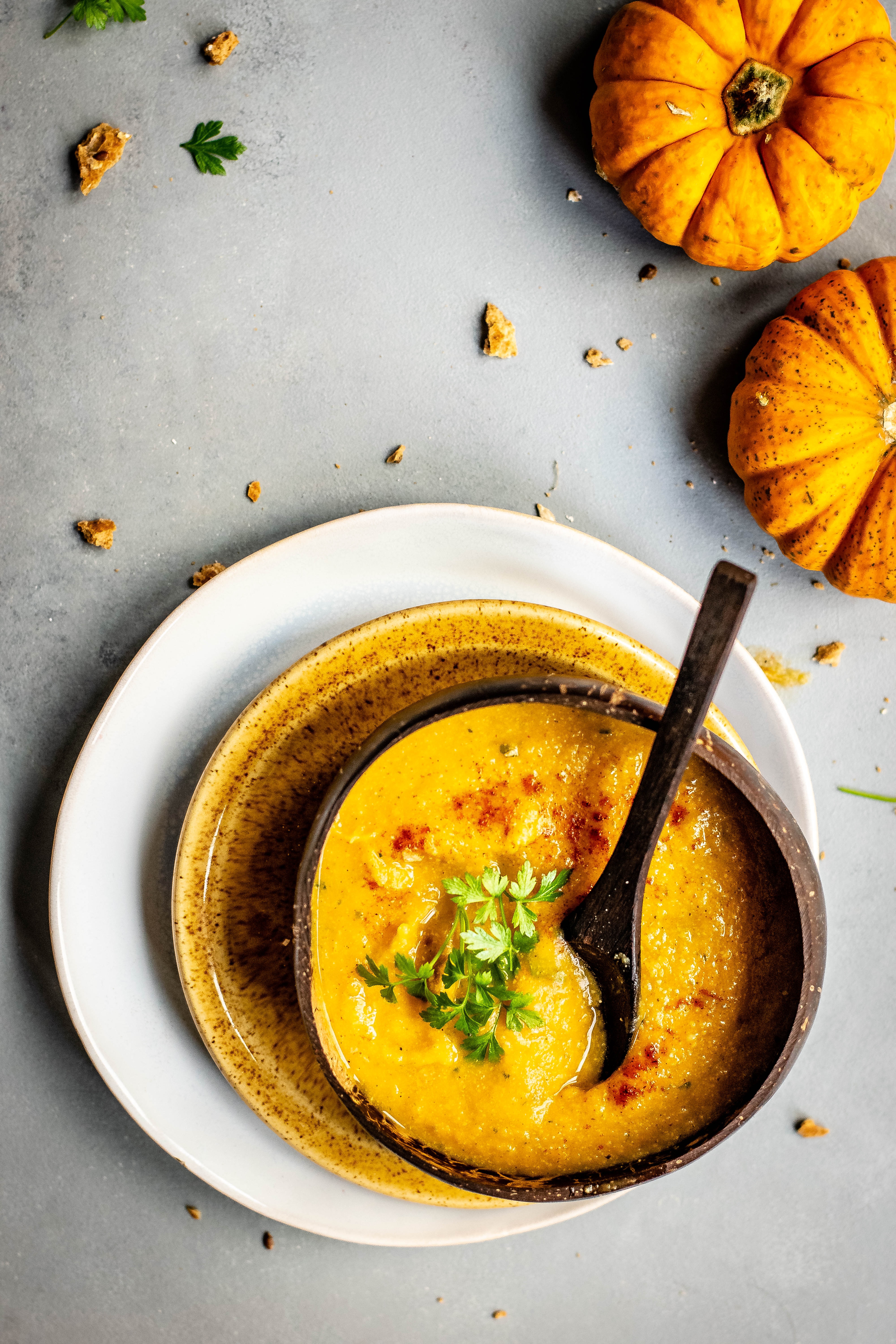
by Tanya Keam | May 2, 2023 | Acupuncture, Autoimmune, Bloating, Chinese medicine, Chronic fatigue, Client information, Digestive health, Health practitioner, Herbal remedies, IBS, Immune system, Inflammation, Loose stools, Nambour, Nourishing, Seasonal living, Sunshine coast
Digestive health in Chinese medicine is determined by the digestive symptoms we experience. The way food is prepared and cooked affects how we absorb nutrients. Our energy level, mood, body shape and muscle mass, flavour cravings, gyneocological problems and bowel movements tell us important information. Research is now suggesting a link between the gut-brain connection with conditions like Irritable Bowel Syndrome (IBS) (1) and the effects of our mental health and stress levels impacting our gut health. From a Chinese medicine point of view the way humans can overthink and worry in the mind, directly affects the digestion. Science is just now catching up with digestive health in Chinese medicine.
In Chinese medicine, a lot of emphasis is on the energetics of the spleen organ. What does the spleen do? Its job is to digest food, coagulate blood and metabolise fluid in the body. In other words, transform food and water into energy and then transport that energy around the body to make everything our body is made up of such as blood cells and muscle.
Because our core body temperate ranges from 35.9 to 37.2, the spleen does a much better job when cooked foods are eaten. Like our tummy is a nice warm cauldron. Having an icy cold smoothie, cold breakfast and cold water throughout the day make the spleen work harder by first using energy to warm up whats been ingested, then ‘transform and transport’. Going from a 19 degree fridge temperate (or even colder if you’re eating something frozen, to a 36.5 degree stomach temperature!) So its doing double the work! Symptoms that can arise are fatigue, bloating, excessive sweet cravings, soft and/or loose stools, poor muscle tone and deficiency of minerals and nutrients due to poor absorption.
It’s not to say every meal we have needs to be cooked. But a warm cooked breakfast such as eggs or oats, starts your day off well by keeping you fuller for longer (protein makes you feel fuller so daily eggs are a good option). Salads and raw fruit is still important to consume for vitamins and minerals but ease off on them in the cooler months, or have the salad at room temperature.
Cauldrons of soups, pots of fragrant teas, bowls of steaming rice and slow cooks stews are your best friend in the cooler months because no vitamins or minerals are lost in the cooking methods (like when steaming or blanching vegetables). Instead, all of the nutrients stay in the liquid. Warm meals keep us well and energised.
For people who cannot stomach food in the morning, this is due to the stress hormone cortisol being too high. Adrenaline kicks in when you wake up to get you going for the day because Cortisol is highest first thing in the morning. Often reaching for a coffee on an empty stomach stimulates adrenaline further and people live in this cycle of cortisol – adrenaline. If you have a job where getting up at 3.30am is your day, then you’re not going to be hungry because you’re body is suppose to be still asleep, but come 6-7am your stomach should be telling you to eat something by then. If you really do enjoy a morning coffee, aim for mid morning and have food with it so the caffeine isn’t triggering adrenaline and cortisol.
Ideally, waking up to hydrate with room temperature to warm water, then eat a warm breakfast between 7-9am is best for our digestive health in Chinese medicine theory. The spleen energy kicks in from 9-11am to do its T & T function. With daily exercise, daily bowel movements should be well formed and feel complete. If you need to wipe your bottom a lot or theres quite a lot of smell or mess in the toilet are you flush – your spleen is under-fuctioning like there is a “stickiness” in your stools. In Chinese medicine we call this dampness. Acupuncture and herbal medicine can quickly harmonise this. On the other hand if you’re bowels are irregular or sluggish then the body is absorbing waste back into the body – this can lead to liver problems and further bowel problems. Research has also shown that the warm therapeutic effect of moxibustion (burning compressed mugwort on or near a person’s skin) to help alleviate various conditions involving pain and discomfort, including IBS, showed moxibustion may also provide a benefit to IBS patients in 20 randomised-controlled trial results (2).
If you are suffering from digestive symptoms mentioned above or you believe you have poor digestion, have been diagnosed with inflammatory bowel, IBS or you’re aware stress and emotions are upsetting your stomach, please contact us today to discuss how we can help your digestive health at our Nambour Acupuncture clinic in the Sunshine Coast hinterland.
Hi, I’m T anya, an AHPRA registered Acupuncturist and health practitioner in Nambour in the Sunshine Coast hinterland, Queensland Australia. I practice Chinese medicine because its safe, logical, relevant and has effectively shown methods of natural wellness for thousands of years (read more about my training here). Life doesn’t need to be complicated and nor does the treatment approaches to get people feeling vibrant and well. I’ve seen people gain a lot from treatments, much more than just alleviating symptoms. It’s exciting to connect with people and share deep wisdom from the classics of ancient and traditional medicine, with modern protocols for todays mind-body living. See you in the clinic !
anya, an AHPRA registered Acupuncturist and health practitioner in Nambour in the Sunshine Coast hinterland, Queensland Australia. I practice Chinese medicine because its safe, logical, relevant and has effectively shown methods of natural wellness for thousands of years (read more about my training here). Life doesn’t need to be complicated and nor does the treatment approaches to get people feeling vibrant and well. I’ve seen people gain a lot from treatments, much more than just alleviating symptoms. It’s exciting to connect with people and share deep wisdom from the classics of ancient and traditional medicine, with modern protocols for todays mind-body living. See you in the clinic !
References:
- Harvard Health Publishing (2018). ‘The gut-brain: connection. At: ’https://www.ncbi.nlm.nih.gov/pmc/articles/PMC6111498/
- Mayo Clinic (2018). “Irritable Bowel Syndrome”. At: https://www.mayoclinic.org/diseases-conditions/irritable-bowel-syndrome/symptoms-causes/syc-20360016
- https://bmccomplementmedtherapies.biomedcentral.com/articles/10.1186/1472-6882-13-247#Sec7

by Tanya Keam | Aug 5, 2019 | Acupuncture, Chinese medicine, Client information, Emotions, Health practitioner, Herbal remedies, Mental health, Nambour, Rehabilitation, Spiritual growth, Sunshine coast, Wellness
I’ve been having conversations with new and long term Sunshine Coast patients recently about what makes them decide to go see a certain health practitioner over another.
What’s the stats?
- 80% say they’ll ask a friend if they know of someone because they trust that person has had a positive experience
- 10% do a quick google search for who is local and available NOW
- The other 10% just plod on and try to figure it out and hope it all gets better. (I’m sure we’ve all been in each percentage for different things at different times).
Last week a semi-new patient returned for a monthly appointment. She was telling me about her 2 colleagues at work who also suffered migraines (which was this patients main complaint that’s now been resolved from treatment). One of the colleagues was just at her wits end with constant migraines, not knowing where to turn that she is now taking stress leave from work. Hallelujah for proper rest! However, please, if you have good results with any local Sunshine Coast health businesses in all fields – TELL YOUR FRIENDS AND HELP THEM OUT!
My top tips for choosing the right health practitioner
- Someone close to you goes to them and has had a positive experience.
- The practitioners appointment availability fits your schedule (there’s no point trying to see an ‘amazing practitioner’ referral who isn’t available on a specific day that you need/prefer.
- The practitioner is honest about whether they can help you, is willing to research how they can help you or can find you the right referral if they can’t help you.
- What are your needs that need to be met? Are you looking for a quick fix or someone to guide to you wellness with the treatment that suits you as an individual and also teaches you lifestyle adjustments for preventative health.
- The practitioner is qualified and experienced in their field, holds current insurances and certificates for their modality and does continuing education each year.
- The practitioner explains the treatment clearly to you (if it’s new to you), how it works, how long your condition may take to resolve and even reactions that can occur as your body tries to heal and adjust.
- You have a friendly connection and can hold a good conversation with your practitioner – this may happen down the track but it is important to connect.
- For eg. You may see an Acupuncturist to help manage anxiety (there is good scientific evidence encouraging acupuncture therapy to treat anxiety disorders as it yields effective outcomes, with fewer side effects than conventional treatment). However, you are needing psychology/counselling support to talk to someone in a therapeutic way. It is the practitioners duty of care to practice within their scope of practice and find someone who can assist in that area of your health.
- Ask your other health related modalities if they know of someone – your pilates teacher may know a good counsellor, your naturopath may know a good GP. *Not only should health practitioners take care of themselves, but they invest time and energy to source local health referrals to connect with.
If you’re unsure about going to someone new :
- Research
- Know what they specialise in
- Their experience
- Training and credentials
- Appointment availability.
- Most importantly, call them and talk to them or ask if you can meet them in person prior to making an appointment.
We need to make some failures before we find the right fit sometimes. Don’t sweat it if a ‘great referral’ doesn’t feel right you for – just find someone else. Persist! Your health is your life.
Your local community are there to support you so ask your friends and colleagues for recommendations. If you’re unsure about continuing care with a practitioner, communicate with them about what is and isn’t working. They should be able to change the treatment approach, make some suggestions and respect what you want to do.
Newcomers to Chinese Medicine and Acupuncture have A LOT of questions – feel free to share this info here.
For more information about how I can help with your health, you can contact me
or you can now book online
 Hi, I’m Tanya, an Acupuncturist and health practitioner in Nambour on the Sunshine Coast, Queensland Australia. I practice Chinese medicine because its safe, logical, relevant and has effectively shown methods of natural wellness for thousands of years (read more about my training here). Life doesn’t need to be complicated and nor does the treatment approaches to get people feeling vibrant and well. I’ve seen people gain a lot from treatments, much more than just alleviating symptoms. It’s exciting to connect with people and share deep wisdom from the classics of ancient and traditional medicine, with modern protocols for todays mind-body living. See you in the clinic !
Hi, I’m Tanya, an Acupuncturist and health practitioner in Nambour on the Sunshine Coast, Queensland Australia. I practice Chinese medicine because its safe, logical, relevant and has effectively shown methods of natural wellness for thousands of years (read more about my training here). Life doesn’t need to be complicated and nor does the treatment approaches to get people feeling vibrant and well. I’ve seen people gain a lot from treatments, much more than just alleviating symptoms. It’s exciting to connect with people and share deep wisdom from the classics of ancient and traditional medicine, with modern protocols for todays mind-body living. See you in the clinic !
Research:
Amorim D, Amado J, Brito I, Fiuza SM, Amorim N, Costeira C, Machado J. Acupuncture and electroacupuncture for anxiety disorders: A systematic review of the clinical research, Complementary Therapies in Clinical Practice, 2018 May;31:31-37.
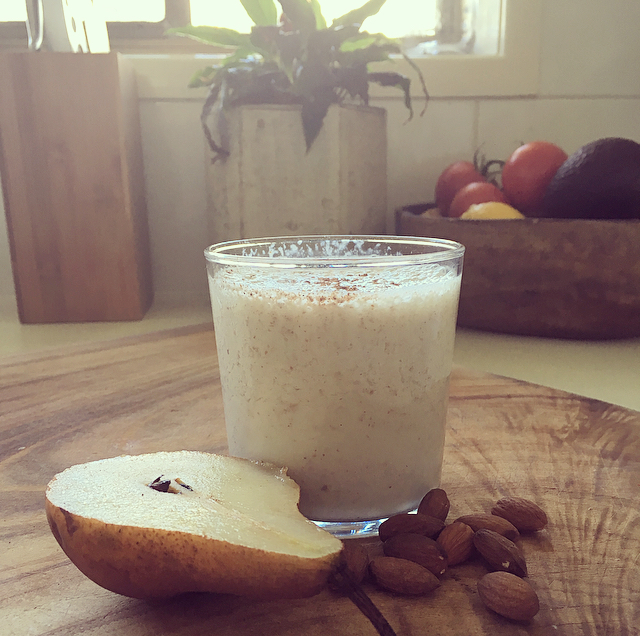
by Tanya Keam | Jun 11, 2018 | Acupuncture, Chinese medicine, Client information, Cough, Dairy alternatives, Dairy free, DIY Wellness Tips, Food, Herbal remedies, Homemade, Immune Support, Immune system, Nambour, Nutrition, Recipes, Seasonal living, Smoothie, Sunshine coast, Vegan, Vegetarian, Wellness, Winter
A simple Chinese Medicine cough recipe
Chinese medicine is seasonal medicine – what better way to take care of yourself than a cough recipe to look after you this season. In Winter it is recommended to consume less cold and raw food as it harsh on our digestive system to process, which is a balmy 36.5 degrees inside. Putting something the temperature of the fridge in a nice warm coldren stomach, first takes energy to warm it before it can digest it. This can lead to fatigue, bloating, and loose bowel movements.
In late Autumn and Winter we opt for:
- More warming foods such as soups and stews to warm us up from the inside!
- Smoothies are generally not recommended in Winter at all as they are too cold. However putting a wonderful twist on the conventional fruit smoothie so that is warming not only for our digestive system but designed to benefit the lungs and relieve coughs.
The main ingredient, pears, is highly valued in Chinese medicine as the fruit that is most beneficial for coughs. What does Autumn and Winter bring? You guessed it, coughs!
Pears are “sweet, slightly sour, and cool.” They “generate fluids” but also “dissolve phlegm,” so they are ideal for treating dry coughs, a hoarse voice, thirst and agitation in general.
Our second key ingredient is almonds which is also a great dairy alternative in smoothies. Almonds have similar properties to apricots in Chinese medicine, with apricot seeds being used as one of the key medicinals for treating coughs. Almonds are not as potent as apricot seeds (which have some mild toxicity and shouldn’t be consumed on a regular basis), but they do have some similar properties – moistening the lungs, relieving coughing and wheezing. That makes them the perfect complement to pears in this smoothie.
This recipe is specific for almond milk which helps resolve phlegm, so don’t switch it up for dairy milk as dairy is more phlegm forming.
Chinese Medicine Cough Recipe (Spiced Pear Smoothie with Almonds and Chia)
Serving size: About 1-2
Ideal for high speed blender
Ingredients
1 Pear (room temperature)
¾-1cup Almond Milk (how thick do you like it?)
10 natural Almonds (soaked overnight in water if possible, otherwise raw is fine)
¼-1/2 teaspoon Garam Masala spice
Dash Cayenne pepper or Cinnamon (to keep the digestive system warm)
1 tablespoon Chia Seed (can be soaked in almond milk prior for 15 minutes to turn into a jelly)
1-2 teaspoons Manuka honey
NO ICE !
Directions
Blend all ingredients until smooth. Enjoy!
Take care this Winter, there has already been many colds and influenza floating around.
 Hi, I’m Tanya, an Acupuncturist and Chinese medicine practitioner in Nambour on the Sunshine Coast, Queensland Australia. I practice Chinese medicine because its safe, logical, relevant and has effectively shown methods of natural wellness for thousands of years (read more about my training here). Life doesn’t need to be complicated and nor does the treatment approaches to get people feeling vibrant and well. I’ve seen people gain a lot from treatments, much more than just alleviating symptoms. It’s exciting to connect with people and share deep wisdom from the classics of ancient and traditional medicine, with modern protocols for todays mind-body living. See you in the clinic !
Hi, I’m Tanya, an Acupuncturist and Chinese medicine practitioner in Nambour on the Sunshine Coast, Queensland Australia. I practice Chinese medicine because its safe, logical, relevant and has effectively shown methods of natural wellness for thousands of years (read more about my training here). Life doesn’t need to be complicated and nor does the treatment approaches to get people feeling vibrant and well. I’ve seen people gain a lot from treatments, much more than just alleviating symptoms. It’s exciting to connect with people and share deep wisdom from the classics of ancient and traditional medicine, with modern protocols for todays mind-body living. See you in the clinic !
Contact me
Book online
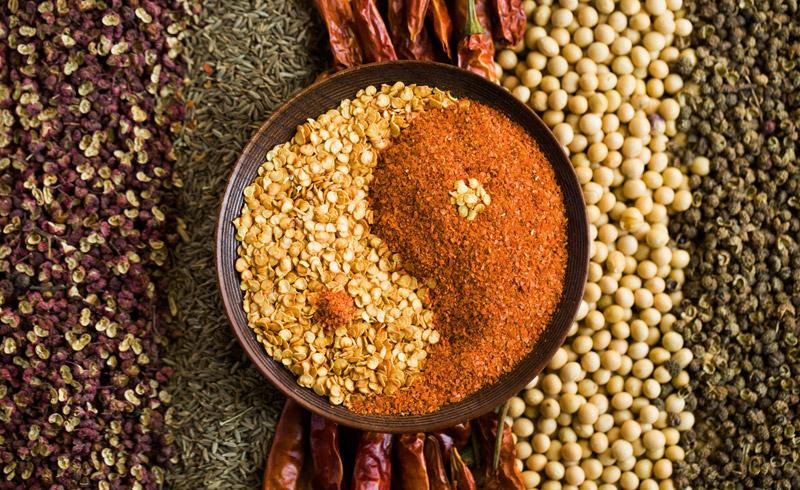
by Tanya Keam | Mar 22, 2017 | Acupuncture, Chinese medicine, Client information, Daily Rituals, Deficiency, DIY Wellness Tips, Emotions, Fertility, fertility acupuncture, Food, Herbal remedies, Hormones, Menstrual cycle, Mental health, Nambour, Nourishing, Nutrition, pregnancy, Stress, Sunshine coast, Wellness, Womens health, Yin
Have you heard of Yin and Yang?
In Chinese philosophy, yin and yang describe how seemingly opposite or contrary forces may actually be complementary, interconnected, and interdependent in the natural world, and how they may give rise to each other as they interrelate to one another. Many tangible dualities (such as light and dark, fire and water, expanding and contracting) are thought of as physical manifestations of the duality symbolized by yin and yang.
Yin qualities include:
Darkness, moon, feminine, shade, quiet, inward
Yang qualities include:
Light, sun, masculine, brightness, loud, outward
Example include:
Night (yin) and day (yang)
Yoga exercise (yin) and boxing exercise (yang)
Yin represents the energy that is responsible for moistening and cooling bodily functions. When this energy is depleted your body begins to show signs of “heating up”. This is not a true heat such as a fever, but rather a lack of the moistening and cooling functions that are necessary to maintain a healthy balance.
Women are more yin, while men are more yang – for example yin is all of the fluids in the body for women (breast milk, menstruation, vaginal discharge/lubricant) – men don’t have this. Men do have some yin qualities, as well as women having some yang qualities.
This post is focused on yin foods, thus nourishing the body and rebalancing conditions. These can include dry skin, menopausal hot flushes, tendon and ligament tightness or flaccidity, vaginal dryness, lack of breast milk production, low libido, insomnia, feeling low, scanty menstruation, hot hands and feet, constipation, dull headaches or anxiety.
Why is your yin imbalanced? Well, lots of reasons – genetics, age, stress on the body, trauma, blood loss, excess sexual activity, recreational drug use, too many yang hot foods, poor diet and lifestyle to name a few.
Nutrition is a simple way to balance yin and yang. Yin foods are cool and expanding; Yang foods are warm and contracting. Think of a shell of iceberg lettuce (Yin), and now a chunk of beef steak (Yang), and you will instantly recognise this meaning.
Foods to nourish Yin include:
- Grains: barley, millet
- Vegetables: alfalfa sprout, artichoke, asparagus, kelp, mung bean sprout, pea, potato,seaweed,string bean, sweet potato, tomato, water chestnut, yam, zucchini
- Fruit: apple, apricot, avocado, banana, lemon, lime, mango, mulberry, pear, persimmon, pineapple, pomegranate, watermelon
- Beans: adzuki, black beans, black soya, kidney, lima, mung
- Bean Products: tofu
- Nuts and seeds: coconut milk, sesame seed, black sesame seed, walnut
- Fish: fish in general but especially clam, fresh water clam, crab, cuttlefish, oyster, octopus, sardine
- Meat: beef, duck, goose, pork, pork kidney, rabbit
- Dairy: cheese, chicken egg, cow’s milk, duck egg
- Herbs and spices: marjoram, nettle
- Oils and condiments: honey, malt,
Common supplements: Ginseng, royal jelly
Examples of every day foods that can be used to build yin, include:
- Fruit smoothies with honey and banana or a fruit salad
- Fish dishes with coconut milk
- Omelettes with cheese
- Asparagus and egg salads with sesame seeds
- Tacos made with Kidney beans and topped with a small amount of cheese
- Baked Potato stuffed with tofu with soya sauce and sesame seeds.
- Pork and apple dishes
- Miso soup with tofu and seaweed
Foods to avoid:
- Stimulating foods such as the following will only further deplete yin: caffeine, alcohol, sugar and strongly heating, pungent spices.
Note: Like yin tonifying herbs, yin building foods have a tendency to congest the digestive organs and promote stagnation if large amounts are consumed. It is therefore important to consume small quantities frequently rather than large helpings irregularly. Such as a large portion if a fish coconut curry late at night is not ideal as it will sit in your stomach, stagnate and not digest properly before bed. Thus a small portion between 5-6pm is more ideal as there is more time before you go to bed to digest it.
Also, It’s not to say that yang foods you already consume such as roast chicken, other types of fish, coffee, tea, black pepper etc are to be completely avoided. Remember yin and yang balance each other out, are contrary forces that are actually complementary, interconnected, and interdependent of each other.
Other yin tips: meditate; eat more fresh fruit and salads; drink more water, teas and juices; wear pastel colors; wear loose, flowing clothes; stretch; get out into nature; listen to relaxing music; light candles at night.
Take care of you, see you in the clinic,
TK xx
Tanya Keam Wellness is an experienced health clinic in Nambour on the Sunshine Coast. Helping you to feel better in all aspects of your health and wellbeing.
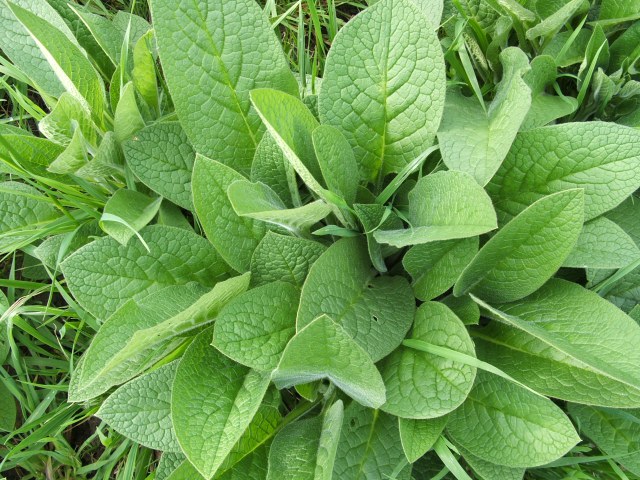
by Tanya Keam | Sep 7, 2015 | Client information, DIY Wellness Tips, Herbal remedies, Joint pain, Muscle pain, Nourishing, Rehabilitation
Comfrey has been used for thousands of years both internally and topically for a number of ailments. Comfrey was historically used to treat a wide variety of ailments ranging from bronchial problems, broken bones, sprains, arthritis, gastric and varicose ulcers, severe burns, acne and other skin conditions. It was reputed to have bone and teeth building properties in children, and have value in treating many female disorders.
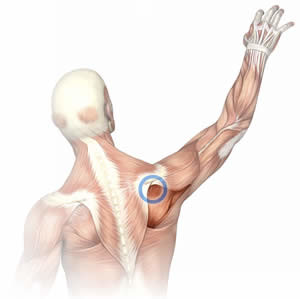
Comfrey, like other herbs/plants/pharmaceuticals have properties that can become toxic to the liver if ingested internally at very unrealistic high doses. Hence, as a practitioner, I prefer to use this plant topically in creams and ointments post acupuncture treatments for muscle strains, bruises, rehabilitation of injuries and bone repair, such as joint injury, post-operative care.
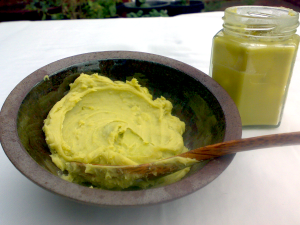
Externally, it is said to be anti-inflammatory due to its natural concentration of allantoin (a natural chemical compound – a natural soothing, anti-irritant, and skin protectant that increases the water content of the extracellular matrix which provides structural support to cells and is an important part of connective tissue).
It is high in Calcium and Vitamin C and in folk medicine it is sometimes referred to as “knitbone” for its ability to speed wound healing.
Not recommended for use in pregnant women, even externally.
Take care of you, see you in the clinic,
TK xx
Tanya Keam Wellness is an experienced health clinic on the Sunshine Coast. Helping you to feel better in all aspects of your health and wellbeing.
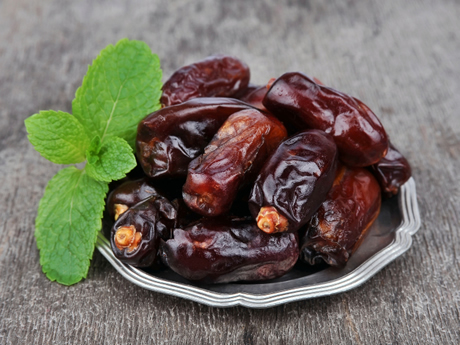
by Tanya Keam | Feb 12, 2015 | Acupuncture, Buderim, Chinese medicine, Client information, Daily Rituals, Deficiency, DIY Wellness Tips, Herbal remedies, Nourishing, Nutrition, Sunshine coast, Wellness, Womens health
Blood deficiency
Is a diagnostic term we use in Traditional Chinese medicine (TCM) for someone who is showing signs and symptoms of inadequate nourishment of the blood within the body. It is not uncommon for women to present with this type of deficiency as women lose blood in every menstrual cycle, however men can also present with it.
Many of the symptoms (below) are similar to iron deficiency anaemia, however the concept of blood in TCM refers more to the quality of the blood in its entirety to nourish the body as a whole. Whereas, anaemia in a Western term relates to deficiencies of folic acid, B12, protein building blocks and other nutrients. It may be beneficial to share with your TCM practitioner if you are aware that you are iron deficient so that dietary changes can be made.
Symptoms include :
Low energy
Blurry vision
Light headedness
Poor memory
Dry eyes, skin and hair
Pale complexion, lips, tongue colour, nails and inside the eyelid
Difficulty falling asleep
Hair loss or premature greying
Women – light or absent periods, migraines/headaches at specific times in the cycle
Tremors, numbness, tics
Weak nails
Anxiety or other mood fluctuations
To correct the deficiency
We first look at where the deficiency is coming from:
1. A diet which is lacking in the appropriate nutrients
2. Poor digestive function (the ability to absorb nutrients)
3. Excessive bleeding (often menstrual but also due to trauma or following surgery)
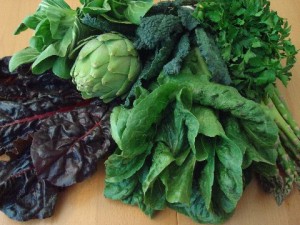
Nutritional support
| Grains |
Barley, corn, oats, rice, sweet rice, wheat, bran |
| Vegetables |
Alfalfa sprout, artichoke, beetroot, button mushroom, cabbage, celery, dandelion leaf, dark leafy greens, kelp, shiitake mushroom, spinach, watercress, wheatgrass |
| Fruit |
Apple, apricot, avocado, date, fig, grape, longan, mulberry |
| Beans/legumes |
Aduki, black soya, kidney, chickpea, red lentils |
| Nuts, seeds |
Almonds, black sesame |
| Fish |
Mussel, octopus, oyster, sardine, tuna |
| Meat |
All red meat especially bone marrow and liver (beef, pork, sheep). Bone broths are particular helpful |
| Dairy |
Chicken egg, |
| Herbs, spices |
Nettle, parsley |
| Oils, condiments |
Amasake, molasses |
| Beverages |
Soya milk |
| Common supplements |
Algae, pollen |

Foods especially useful
| Vegetables |
artichoke, beetroot, dandelion leaf, kelp |
| Fruit |
avocado, date, mulberry, grape |
| Nuts /seeds |
black sesame |
| Fish |
oyster |
| Meats |
beef, liver (both pork and sheep) |
| Herbs/ spices |
nettle |
| Oils/ condiments |
molasse |
Acupuncture
You may be consuming the correct foods, however if your digestive function is depleted than the nutrients are being passed through your stools instead of being transported to the cells around your body. This is where acupuncture comes in!
Acupuncture alone cannot nourish the blood, but it can greatly improve on the digestive function, like giving your body a 10-20% boost in what your digestive function should be doing, thus increasing the absorption of nutrients from food.
Cooking methods
There is also great importance on the way that foods are cooked. To support your digestive system, lightly cooking (steaming, blanching, soups, stews) and consuming warm foods is ideal. Add in some spices to aid digestion such as ginger, cumin, fennel and cardamom.
Herbs and supplements
To support your system further (on top of acupuncture treatments and dietary changes) and to nourish the blood more efficiently, a herbal formula may be developed for your individual situation. Supplements may include iron, vitamin B12, folic acid and to enhance iron absorption vitamin C (lemon juice) may be also taken with foods such as leafy greens.
Take care of you, see you in the clinic,
TK xx
Learn more > http://www.tanyakeamwellness.com
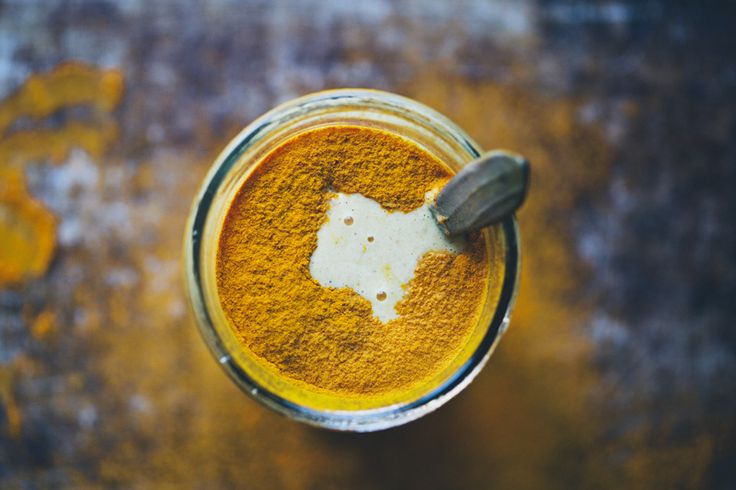
by Tanya Keam | Feb 4, 2015 | Autumn, Chinese medicine, Client information, DIY Wellness Tips, Food, Herbal remedies, Homemade, Immune Support, Immune system, Liver Health, Nourishing, Nutrition, Recipes, Seasonal living, Sunshine coast, Wellness, Winter
Immune Boosting Tumeric Lassi
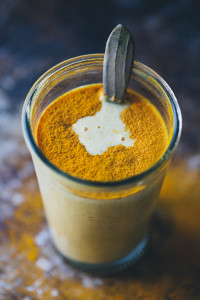
The Benefits of Tumeric
1. Otherwise known as Circuma longa, is a member of the ginger family, Zingaberaceae.
2. A wonderful aspect on the liver. Spring (and late winter) is an important time to consume herbs and foods that strengthen the liver, because spring is the season which rules the liver and gallbladder in Traditional Chinese Medicine. It is said to shrink engorged hepatic ducts, so it can be useful to treat liver conditions such as hepatitis, cirrhosis, and jaundice.
2. Highly valuable for the influence it exerts on the digestive system and the liver. In both Ayurvedic and Traditional Chinese Medicine, it is considered a digestive bitter and a carminative. It can be incorporated into foods, including rice and bean dishes, to improve digestion and reduce gas and bloating. It is a cholagogue, stimulating bile production in the liver and encouraging excretion of bile via the gallbladder. This improves the body’s ability to digest fats.
3. Recommended for chronic digestive weakness and/or congestion. It can be taken as a single extract or in the form of digestive bitters, which combine turmeric with other bitter and carminative herbs. Take either of these twenty minutes before meals, especially meals that are high in protein and/or fat. It is beneficial for people who feel tired after consuming meals or who experience gas and bloating.
4. Anti-inflammatory to the mucous membranes, which coat the throat, lungs, stomach and intestines. Turmeric decreases congestion and inflammation from stagnant mucous membranes. People with the following conditions could benefit from regular use of turmeric: IBS (Irritable Bowel Syndrome), colitis, Crohn’s disease, diarrhea, and post-giardia or post salmonella conditions. It can also reduce the itching and inflammation that accompanies hemorrhoids and anal fissures.
5. Useful to follow up antibiotic treatments, in addition to acidophilus and garlic. It helps to improve the intestinal flora and acts as an anti-bacterial.
6. Turmeric can also benefit skin conditions including: eczema, psoriasis and acne, for it is a potent detoxifier.
7. Turmeric is an antispasmodic to smooth muscles so it reduces digestive and menstrual cramping.
Try adding turmeric to your oatmeal, grains and beans, or take digestive bitters. Whatever way that turmeric is consumed it will benefit both the digestive system and the liver.
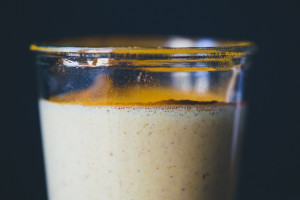
2 large or 4 small glasses
2 cups organic yogurt with active live culture, or dairy or nut milk
2 bananas
2 tsp freshly grated ginger
2 tsp honey, preferably raw (unpasteurized)
1/2 lemon, juice
2 tsp rosehip powder (optional but delicious, and a good C-vitamin boost)
1 tsp vanilla extract or ground vanilla
3-4 tsp ground turmeric (or fresh turmeric root)
Place all ingredients in a blender and mix on high speed until smooth. Add more yogurt if you prefer. Pour the lassi in two large glasses. For a more stunning presentation, dust 1 tsp ground turmeric on top before serving. Add a straw and serve.
Eat well, drink well, take care of you, see you in the clinic,
TK xx
Learn more > http://www.tanyakeamwellness.com
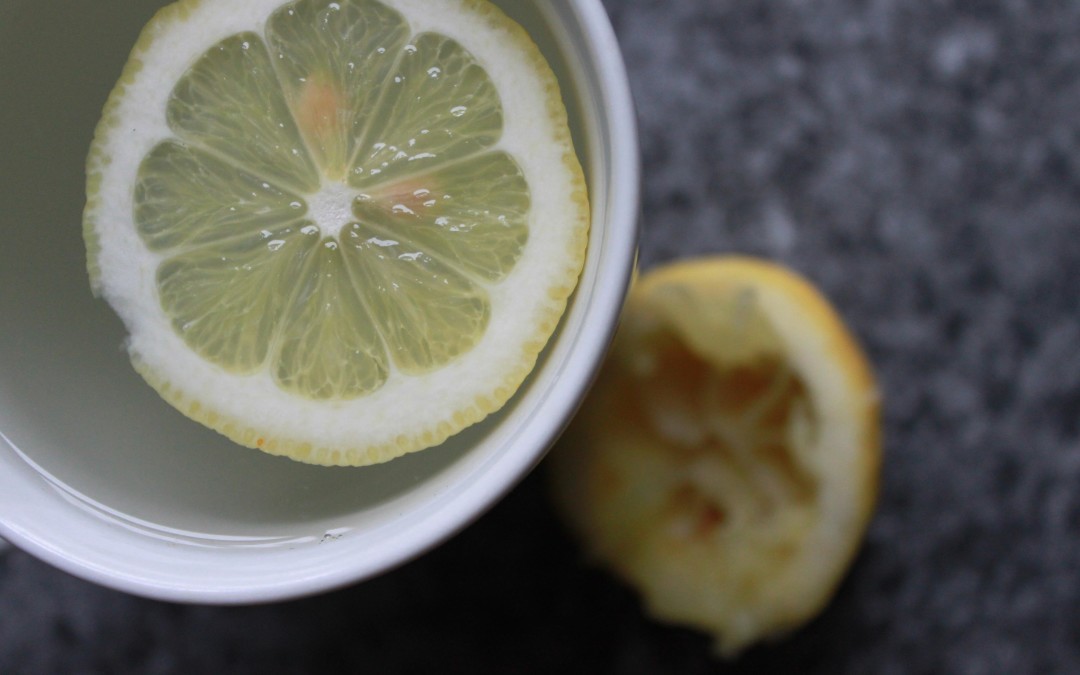
by Tanya Keam | Feb 4, 2015 | Chinese medicine, Client information, Daily Rituals, Dairy free, DIY Wellness Tips, Food, Gut flora, Herbal remedies, Homemade, Liver Health, Nourishing, Nutrition, Recipes, Seasonal living, Sunshine coast, Vegan, Vegetarian, Wellness
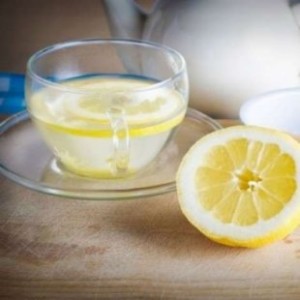
The Five Flavours in TCM
Foods are associated with certain specific properties according to their taste. The five flavours TCM recognizes are: sour, sweet, bitter, pungent and salty. These are also linked to the four natures, being temperatures: cold, cool, warm and hot. TCM uses the flavours of food to coincide with the seasons. For example: In winter we enjoy more warm – hot meals to warm us up, and in Summer we enjoy more cool – cold foods to cool us down.
It is thought that lemons originated in China (along with India, Burma and other parts of southeast Asia) so it’s no surprize that the lemon also forms a part of a healthy diet according to Traditional Chinese Medicine (or TCM).
Hot lemon water first thing in the morning is ideal for the liver to get things moving for the day ahead, both energetically, as well as to hydrate the body after 8 hours of sleep, and to stimulate bile to assist the digestive system in breaking down food.
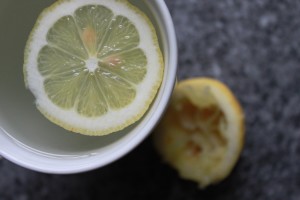
- Lemons are very beneficial for colon health due to the pectin fibres and also serves as a powerful antibacterial
- Lemon is an excellent and rich source of vitamin C, an essential nutrient that protects the body against immune system deficiencies
- It balances maintain the pH levels in the body
- Having warm lemon juice early in the morning helps flush out toxins
- It aids digestion juices and encourages the production of bile
- It is also a great source citric acid, potassium, calcium, phosphorus and magnesium
- It helps prevent the growth and multiplication of pathogenic bacteria that cause infections and diseases
- It helps reducing pain and inflammation in joints and knees as it dissolves uric acid
- It helps shift common cold symptoms
- The potassium content in lemon helps nourish brain and nerve cells
- It strengthens the liver by providing energy to the liver enzymes when they are too dilute
- It helps balance the calcium and oxygen levels in the liver In case of a heart burn, taking a glass of concentrated lemon juice can give relief
- It is of immense benefit to the skin and it prevents the formation of wrinkles and acne
- It helps maintain the health of the eyes and helps fight against eye problems
- Lemon juice helps replenish body salts especially after a strenuous workout session
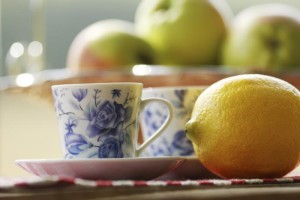
Tips
Juice a whole heap of lemons in one go and freeze the juice into ice cubes so that they are ready to go each morning
Diluting the juice and brushing your teeth after drinking is advised to prevent tooth enamel decay.
Take care of you, see you in the clinic,
TK xx
Learn more > http://www.tanyakeamwellness.com

 Tanya Keam is an integrative Chinese medicine Doctor and registered Acupuncturist in Nambour in the beautiful Sunshine Coast hinterland in Queensland, Australia. If you’re experiencing the above symptoms or interested in Traditional Chinese Medicine and Acupuncture treatment specifically for Irritable Bowel Syndrom, please reach out to see if Acupuncture, herbal medicine and lifestyle guidance might support you to feel better.
Tanya Keam is an integrative Chinese medicine Doctor and registered Acupuncturist in Nambour in the beautiful Sunshine Coast hinterland in Queensland, Australia. If you’re experiencing the above symptoms or interested in Traditional Chinese Medicine and Acupuncture treatment specifically for Irritable Bowel Syndrom, please reach out to see if Acupuncture, herbal medicine and lifestyle guidance might support you to feel better.


















